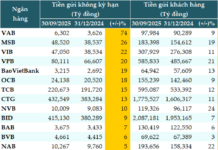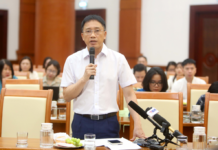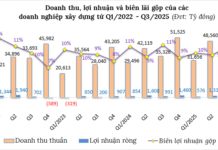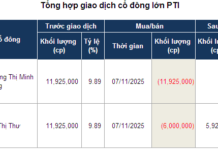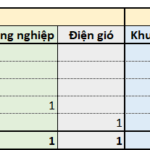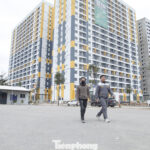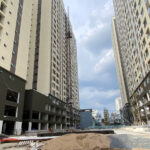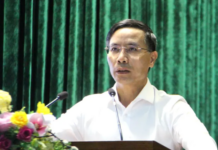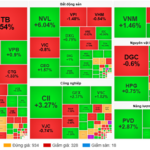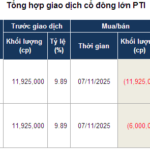Revolutionary Housing Solution for Young, Low-Income Individuals
According to Ms. Do Thu Hang, Senior Director of Research & Consulting at Savills Hanoi, the National Housing Fund can facilitate access to affordable commercial housing and social housing, enhancing homeownership opportunities for workers.
The National Housing Fund model not only plays a significant role in addressing housing needs and stabilizing the lives of low- to middle-income workers but also promotes sustainable market development.
To maximize the fund’s effectiveness, clear objectives, diversified funding sources, and transparent management are essential.
The fund should focus on providing financial support for individuals seeking to purchase or rent homes at affordable prices. Many low- to middle-income workers do not qualify for social housing but also cannot afford commercial housing, especially in major cities.
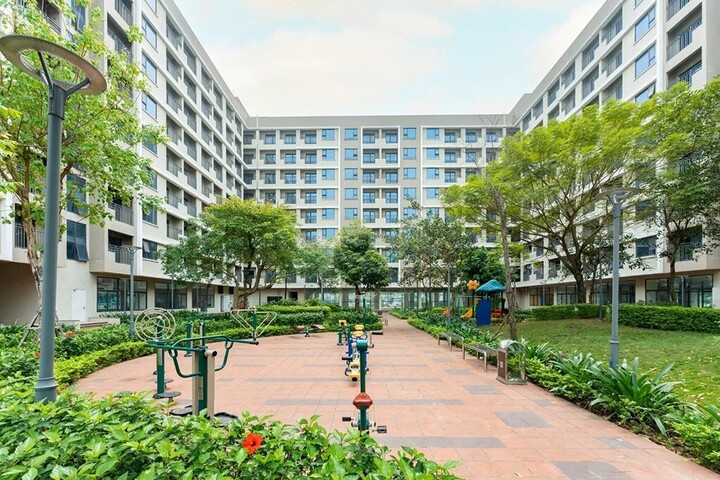
The National Housing Fund will enable more people to own homes. (Photo: Government News)
In addition to contributions from workers, businesses, and the state budget, encouraging real estate companies to participate is crucial for the fund’s sustainability. In return, the government can offer incentives such as tax exemptions and financial support to attract investment in social housing.
Mr. Nguyen Quang Huy, CEO of the Finance and Banking Department at Nguyen Trai University, stated that establishing the National Housing Fund is a strategic and sound decision. If successfully implemented, it will be a breakthrough solution for social welfare and sustainable urban development.
“The National Housing Fund will play a vital role in providing low-interest loans and long-term payment plans, enabling people to access housing without significant financial pressure. It will also support the development of affordable rental housing for those unable to purchase homes,” Mr. Huy noted.
Dr. Nguyen Van Dinh, Vice Chairman of the Vietnam Real Estate Association, agreed, highlighting the market’s imbalance and severe shortage of affordable and social housing. Establishing the National Housing Fund is a breakthrough solution to address housing needs for low-income workers and ensure social welfare, enabling people to “settle down and thrive.”
Furthermore, the fund will promote economic development, particularly in industrial zones and major cities, while addressing supply-demand imbalances and ensuring the real estate market’s sustainability.
Dr. Vo Tri Thanh, Director of the Institute for Brand and Competition Strategy, emphasized that rapid urbanization, rising property prices, and limited incomes make it challenging for many, especially young and low-income individuals, to secure housing.
Therefore, the National Housing Fund is not only a timely solution but also a strategic approach to ensuring social welfare, addressing housing issues, and stabilizing the lives of low- to middle-income individuals in urban areas, particularly in major cities like Hanoi and Ho Chi Minh City.
Additionally, the fund will increase the supply of affordable housing, reducing the gap between high-end and low-cost housing segments, thereby promoting sustainable real estate market development.
Ensuring the Fund’s Effective Operation
Ms. Do Thu Hang emphasized the need for strict and transparent management to prevent losses, corruption, and ensure proper fund usage.
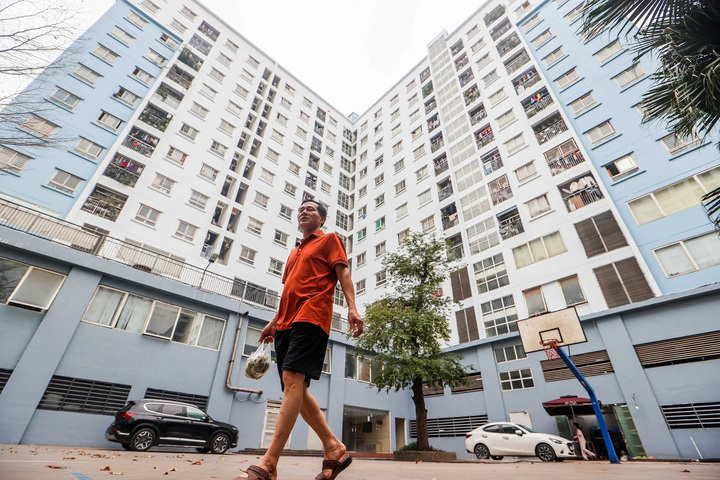
The National Housing Fund is expected to operate solely through rental schemes.
Proposed solutions include: establishing detailed regulations for fund mobilization, management, and allocation; setting housing quality standards to prevent substandard construction; implementing conditions to prevent speculation and misuse; creating a public electronic portal for revenue, expenditures, beneficiary lists, and project progress; and establishing an independent oversight mechanism for public and social organization monitoring.
Mr. Nguyen Quang Huy suggested diversifying funding sources and engaging various economic sectors. “The state budget will be the primary source initially. Contributions from citizens, similar to social insurance, can create a shared fund, offering financial support when needed. Additionally, low-cost capital from urban and housing development funds, such as ODA and preferential loans from international organizations or banks, and bond issuance can attract long-term investment,” he explained.
Dr. Vo Tri Thanh believes state budget resources will serve as “seed capital,” crucial for the fund’s effective operation. This foundational capital will build trust and encourage participation from other economic sectors.
He also advocated for shifting the approach to social and affordable housing development, making it an attractive investment opportunity rather than just a responsibility. This can be achieved through incentives like reduced land fees, expedited permits, low-interest loans, and simplified administrative procedures.
“With the right policies, business participation in this housing segment will significantly increase,” Dr. Thanh emphasized.
Mr. Le Hoang Chau highlighted the importance of ensuring funds reach the intended beneficiaries and purposes. Preferential loans should be flexible, tailored to recipients’ payment capabilities, with clear regulations to prevent misuse and policy exploitation.
Affordable housing must include price control mechanisms and ownership restrictions to prevent speculation. Vietnam could adopt rent-to-own models or minimum ownership periods to ensure the fund is not misused for speculative purposes.
Dr. Nguyen Van Dinh affirmed the National Housing Fund’s feasibility for Vietnam but stressed the need for a design aligned with market specifics and domestic financial resources. The government must have clear land use plans and public land utilization strategies, combined with incentives, to facilitate suitable housing projects.
The fund requires not only state resources but also contributions from workers and real estate businesses. Allocating a portion of commercial project profits for social housing or rentals will help address low-income workers’ housing needs.
“Industrial zones should take responsibility for worker housing. Relying solely on local governments has led to social welfare, environmental, and security issues. Businesses should participate in urban infrastructure and housing development or contribute financially to state-led projects,” Dr. Dinh stated.
Ms. Tong Thi Hanh, Director of the Housing and Real Estate Market Management Department (Ministry of Construction), noted that the fund will focus on rental housing. Young people have a constant need for social housing, requiring efficient land use and targeting those with genuine housing needs.
“A rental-focused social housing fund ensures its cyclical use. After a period, tenants can rent out their units when they transition to commercial housing, promoting sustainable social welfare as directed by the Party and State,” Ms. Hanh explained.
The Ministry of Construction is engaging businesses and social organizations to share the burden with the state. Collective efforts, similar to those in eliminating temporary and dilapidated housing, will ensure success.
“A stable housing fund will eliminate the constant need for social housing land. This decree addresses both housing needs and land allocation challenges,” Ms. Hanh concluded.
Urban Development Project and 500MW Wind Power Plant: Investment Opportunities Open September 20-26
During the week of September 20-26, 2025, five provinces and cities in Vietnam will be seeking investment for six projects, totaling over 50.5 trillion VND in capital. Notably, Hanoi will feature a major urban functional area project valued at more than 20.2 trillion VND, while Ha Tinh will host the Eco Wind Ky Anh wind power plant project with a capacity of 498MW.
Can the Rise of Social Housing Cool Down Soaring Property Prices?
Amid soaring commercial property prices, the dream of stable housing for urban residents feels increasingly out of reach. Even the social housing sector, once seen as a solution to ease this pressure, is now plagued by delays, further complicating the situation.
How Will the National Housing Fund Revolutionize the Real Estate Market?
The establishment of a National Housing Fund has the potential to revolutionize the current imbalanced real estate market. By targeting the creation of this fund, we aim to support not only the development of social housing but also the growth of affordable commercial housing, utilizing tailored mechanisms for each category.
Groundbreaking Ceremony Marks the Launch of Multiple Projects in Dong Nai
Eight groundbreaking projects and developments were simultaneously launched to commemorate the 1st Party Congress of Dong Nai Province’s Party Committee.







